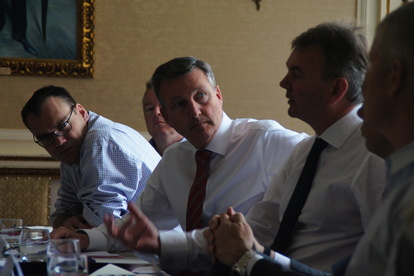Expert: Akos Szalay Head of Product- Wealth Portal Dorsum Ltd Facilitator: Brod Whiting
Headlines:
- Larger firms all have a client portal and they have in fact become a hygiene factor
- The usage of the portals varies between the different businesses. Some firms provide a portal which is simply a means for clients to log in and see their valuations whilst others use it as a communication channel with their clients
- Data that can be captured very simply from a portal includes the frequency each client logs on, how long they log on for and - if being used for a digital journey - where the drop off points might be
Context:
Not that long ago client portals were a bit of a novelty and viewed sceptically by some. “Not sure I want clients to be looking at their portfolios whenever they want to as this means they will be on the phone to me every time the valuation goes down.”
Examples of wider portal usage include the facility for clients to be able to upload and store their own important documents, fill in fact finds and receive up to date reports at a desired frequency, rather than an annual document in the post. It was suggested that the portal could be used as a way of simplifying client adoption or using it for simplified advice.
Whilst it was agreed that data was key to running a successful business, it was apparent that the majority of businesses used a very little amount of data from their portal. The lack of usage could be down to the facility not being available in their portal, the adviser not being aware of the functionality or the adviser not seeing the benefit of utilising the data.
The matter of using a client portal for a client journey morphed into a discussion about Robo advice. Whilst at one stage it may have been considered a threat to traditional face to face advice, this has at least for the present time proved not to be the case.
It was stated that no Robo advice offering has been able to make a profit. There was also some debate about whether clients would actually trust a totally digital experience with a large some of their money.
Whilst it is generally considered that doing everything digitally with minimum human interaction is the way forward, it was felt by the audience that when dealing with wealth management even the younger clients prefer human interaction.
One firm sited that they had carried out research with university graduates to back that up.
The most innovative use of a client portal appeared to serve as a bit of a wake-up call to the rest of the audience. One firm has two client portals - one which is more conventional where the client can log on to see valuations, their risk profiling documents and all of the correspondence to and from their adviser, the other which serves as loyalty scheme for their clients and has double the use of the conventional one.
The well-being and loyalty scheme for their employees has also been extended out to their clients. This has become a key part of their business, which they view it as a great retention tool but also provides added value to their clients beyond the usual wealth management proposition.
As they pointed out, everybody seems to offer loyalty schemes from supermarkets to the local coffee shop but financial advice firms seem to be stuck in their ways. Everyone present seemed to think this was a great addition to their business models so it will be interesting to see how many will be adopting a similar approach over in 2023.
Key takeaways:
- Dorsum pointed out that research shows across generations, wealth management clients prefer to have both human and digital elements in the advisory process
- Their slide illustrated only 17% of wealth management clients prefer a completely digital means of receiving and processing financial advice
- It was felt that this might change as AI develops and chat bots become more realistic


